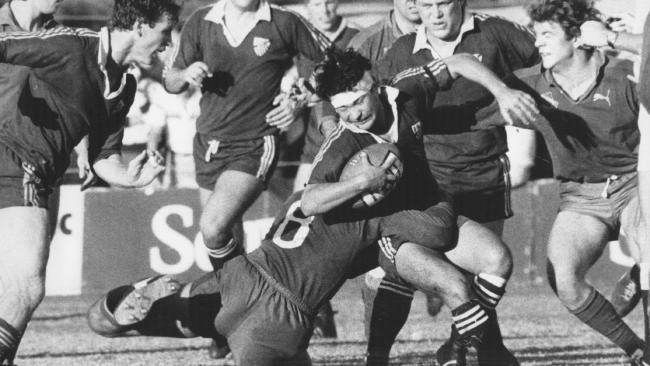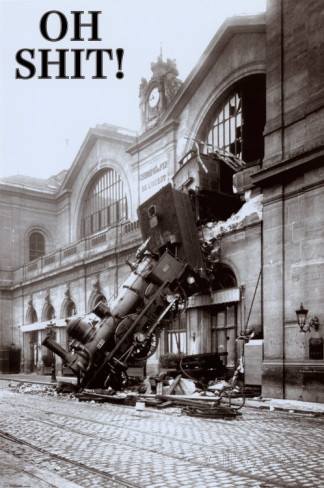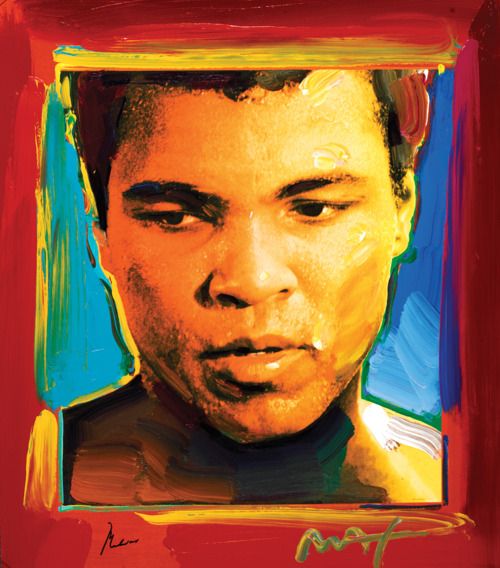Monthly Archives: June 2016
Team SA get short shrift from Olympic forecasters
 The news is bleak for South Africa if you’re an Olympic fan.
The news is bleak for South Africa if you’re an Olympic fan.
PricewaterhouseCoopers and its smart economists have rattled the bones and come up with a projection of who will win what at the Rio Olympics.
Despite local sport bosses having stuck their necks out and predicted a haul of 10 medals, PwC’s boffins don’t even rank SA in the top 30 with nations like New Zealand, Azerbaijan and even Iran reckoned to have a greater chance.
The study is well worth a read, but for those with short attention spans, here’s a summary of the key findings:
- Brazil team set to benefit from “home town” effect.
- Economic size matters in medal tally – but David can still beat Goliath.
- US and China to renew their top-of-the-table tussle in 2016.
- The US will again head the table, capturing a few more medals than in London. China will again be in second place in the table.
- Now it is no longer the host country, Great Britain may find it difficult to match its exceptional performance in London 2012 – though the PwC model suggests it should remain as high as fourth in the medal table.
- Host nations generally punch above their weight at the Olympics, which bodes well for the Brazil team in Rio, despite the country’s recent economic problems. The model projects they could win around 25 medals in Rio, up from 17 in London.
- Of the under-performing nations relative to population and GDP, the model still suggests that India leads the way.
The following economic and political factors were found to be statistically significant in explaining the number of medals won by each country at previous Olympic Games:
- Size of economies (measured by GDP at purchasing power parity (PPP) exchange rates).
- Performance in the previous two Olympic Games.
- Whether the country is host nation.
In general, the number of medals won increases with the population and economic wealth of the country; but there are exceptions like Jamaica and Kenya. Jamaica, for example, is projected to win 0.4 medals in Rio for every $bn of GDP, while the same ratio is only around 0.02 for the UK and Russia, and around 0.005-0.006 for the US and China.
“David can sometimes beat Goliath in the Olympic arena, although superpowers like the US and China continue to dominate the top of the medals table,” says PwC chief economist John Hawksworth.
In the extract below, the model estimates the top 12 medal-winning countries in Rio compared to London 2012 – the full table is lower down.
| Country | Model estimate of medal total in Rio 2016 | Medal total in London 2012 | Difference |
| 1. US | 108 | 103 | +5 |
| 2. China | 98 | 88 | +10 |
| 3. Russia1 | 70 | 81 | -11 |
| 4. Great Britain | 52 | 65 | -13 |
| 5. Germany | 40 | 44 | -4 |
| 6. Australia | 35 | 35 | 0 |
| 7. France | 34 | 34 | 0 |
| 8. Japan | 33 | 38 | -5 |
| 9. South Korea | 27 | 28 | -1 |
| 10. Italy | 26 | 28 | -2 |
| 11. Brazil | 25 | 17 | +8 |
| 12. Ukraine | 20 | 20 | 0 |
- If Russian athletes are not able to compete, this will have a material impact on the medal totals of other countries.
Past Olympic performance is important, reflecting the stronger sporting traditions in some countries, and the level of government funding for Olympic sports. Adds John Hawksworth: “We can see this effect at work in China recently, where state support contributed greatly to their Olympic success in Beijing and London.”
Naturally, all models are subject to margins of error and can never take full account of the human factor of exceptional individual performances.
| Country | Model estimate of medal total in Rio 2016 | Medal total in London 2012 | Difference |
| 1. USA | 108 | 103 | +5 |
| 2. China | 98 | 88 | +10 |
| 3. Russia | 701 | 81 | -11 |
| 4. Great Britain | 52 | 65 | -13 |
| 5. Germany | 40 | 44 | -4 |
| 6. Australia | 35 | 35 | 0 |
| 7. France | 34 | 34 | 0 |
| 8. Japan | 33 | 38 | -5 |
| 9. South Korea | 27 | 28 | -1 |
| 10. Italy | 26 | 28 | -2 |
| 11. Brazil | 25 | 17 | +8 |
| 12. Ukraine | 20 | 20 | 0 |
| 13. Canada | 17 | 18 | -1 |
| 14. Netherlands | 17 | 20 | -3 |
| 15. Spain | 17 | 17 | 0 |
| 16. Cuba | 16 | 15 | +1 |
| 17. Belarus | 13 | 12 | +1 |
| 18. Hungary | 13 | 18 | -5 |
| 19. India | 12 | 6 | +6 |
| 20. Kazakhstan | 12 | 13 | -1 |
| 21. Kenya | 11 | 11 | 0 |
| 22. Jamaica | 10 | 12 | -2 |
| 23. New Zealand | 10 | 13 | -3 |
| 24. Poland | 10 | 10 | 0 |
| 25. Iran | 8 | 12 | -4 |
| 26. Romania | 8 | 9 | -1 |
| 27. Azerbaijan | 8 | 10 | -2 |
| 28. Czech Republic | 8 | 10 | -2 |
| 29. Denmark | 7 | 9 | -2 |
| 30. Turkey | 7 | 5 | +2 |
| Top 30 total medals | 771 | 801 | -30 |
| Other countries | 190 | 160 | +30 |
| Total medals | 961 | 961 | 0 |
Saluting rugby’s bolshy new king
Don’t be surprised if Eddie Jones is soon handed the keys to Buckingham Palace.
What Jones has engineered with England – turning the creaking ship around in mere months – confirms his status as one of the grandees of world rugby. Only Steve Hansen can rival him for savvy, although Hansen’s job with the gifted All Blacks is one my grandmother could do.
Jones never considered a settling-in period at Twickenham. He came in, shook things up and produced results instantly.
South Africans know all about Jones. He first attracted attention when he reconstructed the Brumbies, coaching them to a debut Super Rugby title in 2001 – the first non-New Zealand team to do so. Attack was his mantra and the Brumbies played extravagant rugby that was enthusiastically received.
He then had stints with the Reds and the Wallabies before his old pal Jake White rang him asking for help during the 2007 World Cup. Jones was then installed as technical advisor with the petty caveat that he would not be awarded a Springbok blazer.
With pressure mounting in the week of the World Cup final, Jones took it upon himself to calm things. The players warmed to him and days later John Smit hoisted the Webb Ellis Cup on a memorable Paris night.
To a man, the players enjoyed Jones’ input, for he often took a left-field view and challenged their dogma. He got them out of their comfort zones.
Months later, I found myself in a car with Jones, driving from Saracens’ dingy north London office into the city. We had a fascinating talk about events at the World Cup and what I recall was how much he had enjoyed the experience. He spoke of the Springboks’ excellent work ethic, mentioning too the single player who had disappointed him.
Despite winning the series with England in Australia, Jones’ greatest moment came at last year’s World Cup when he coached rank outsiders Japan to a defeat of the Boks. There has never been a bigger upset in rugby history.
‘Those 80 minutes [against SA] vividly demonstrated Jones’ ability for shrewdness, cunning and tactical excellence’
Those 80 minutes vividly demonstrated Jones’ ability for shrewdness, cunning and tactical excellence. This is on top of his quick wit, which is always biting and effective.
The Stormers shemozzle then followed with Jones flying in, signing and then promptly having a re-think after England came calling. It left a bitter taste, but who could really blame him?
England were desperate. He could name his price.
Jones is known to have been shocked by the lack of skills when he arrived, but he quickly got to work. His approach was brutal and he was intolerant of players who didn’t commit.
Further showing his intent, he had a clean out of coaching staff, bringing in Steve Borthwick, who had done outstanding work with Japan, and defensive wizard Paul Gustard. He also signed Neal Hatley, the Bulawayo expat who had played prop for Natal and Western Province. With more English Premiership caps than anyone, Hatley knows his way around a scrum.
There were other astute appointments, like making serial biter Dylan Hartley his captain. Hartley was the bad boy of English rugby, but he was aggressive, pugnacious and offered the sort of mongrel Jones wanted from England. It was high-risk, but it was Hartley who was spotted lifting the Cook Cup in Sydney on Saturday.
Jones never chucked out Stuart Lancaster’s squad en masse. Instead, he worked hard at getting the best out of them. Former captain Chris Robshaw was retreaded as a blindside flanker and produced the goods heroically.
Even an honest player like James Haskell, a donkey at heart, played like a thoroughbred at openside.
Maro Itoje, the 21-year-old lock, was thrown in and for my money was among England’s best.
Jones also got England’s heads right. They were always a physical side, but that edge has sharpened. England were snarling, baying, always looking to assert their physical dominance. And Australia shirked, unable to absorb the pressure.
Jones has enjoyed a charmed ride and knows there will be tougher tests ahead. South Africa, whom England haven’t beaten in 10 years, await year-end, although sadly there is no looming Test against the All Blacks.
England’s renaissance has confirmed the majesty of Jones’ coaching. Pass the keys to the palace. – © Sunday Tribune
SuperSport to air Oscar interview
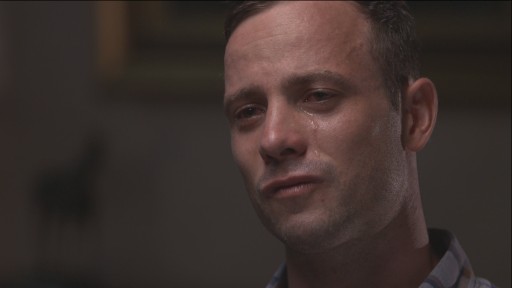 SuperSport has lined up a series of repeats of the exclusive ITV Oscar Pistorius interview.
SuperSport has lined up a series of repeats of the exclusive ITV Oscar Pistorius interview.
A Carte Blanche special, featuring the ITV interview as well as a panel discussion thereafter, will premiere on M-Net and M-Net City tonight (10.55pm) with SuperSport repeats from Saturday through to next Thursday.
Oscar Pistorius: The Interview is the former Paralympic athlete’s first television interview since the tragic events of Valentine’s Day in 2013.
ITV’s award-winning UK investigative journalist Mark Williams-Thomas meets up with Pistorius at his uncle Arnold Pistorius’ home in Pretoria, where he has been under house arrest, awaiting sentencing after South Africa’s Supreme Court of Appeal overturned the High Court’s original verdict of culpable homicide to murder.
In a statement, Arnold Pistorius said: “Not knowing what the future holds for Oscar . . . I decided it was necessary to take up one media offer that would provide our family with a voice to address some of the misconceptions that have remained unchallenged. I wish to make it very clear that this engagement with ITV was my decision, and not Oscar’s initiative.”
The Carte Blanche special will also be available on all the DStv Catch Up platforms
SUPERSPORT BROADCASTS
Saturday, 25 June 06:00 SS1
Saturday, 25 June 07:00 SS2
Saturday, 25 June 08:00 SS1
Saturday, 25 June 09:00 SS4
Saturday, 25 June 12:20 SS2
Saturday, 25 June 16:00 SS4
Saturday, 25 June 20:00 SS4
Saturday, 25 June 22:00 SS2
Sunday, 26 June 02:00 SS4
Sunday, 26 June 06:00 SS4
Sunday, 26 June 08:00 SS2
Sunday, 26 June 13:00 SS4
Sunday, 26 June 15:30 SS2
Sunday, 26 June 22:45 SS4
Monday, 27 June 08:00 SS4
Monday, 27 June 10:00 SS2
Monday, 27 June 15:00 SS4
Monday, 27 June 17:30 SS1
Monday, 27 June 19:00 SS4
Monday, 27 June 20:00 SS2
Tuesday, 28 June 17:00 SS4
Wednesday, 29 June 21:00 SS4
Thursday, 30 June 08:00 SS4
This week’s top reads
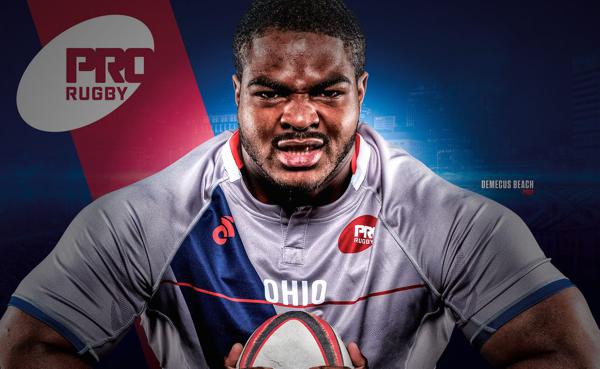 Among rugby tragics like myself, we all agree that the moment America decides to properly embrace rugby, the rest of us can pack up and go home.
Among rugby tragics like myself, we all agree that the moment America decides to properly embrace rugby, the rest of us can pack up and go home.
The country has everything going for it in a rugby sense, except for the groundswell required to make the game thrive. But that could be changing.
This New York Times magazine piece is an evocative look at one man’s quest to start a professional league in the US.
As I read it, I was struck at how it compared to Kerry Packer’s bid to hijack rugby in 1995, not in the sense of a hijacking, but in the wide-eyed innocence of it all. Plus the massive scope of trying to do so.
Our own Pedrie Wannenberg is one of the marquee players, as is former All Black Mils Muliaina.
It’s a romping read that leaves you desperately hoping that Douglas Schoninger’s romantic ideal is finally realised.
□□□
Keith Thurman is that rarest of fighters. He’s a champion boxer with charisma and deep intellect.
The American welterweight faces a tough test against Shawn Porter in New York this weekend, but he won’t be alone.
In his corner will be long-time trainer Dan Birmingham. This Boxing Scene report tracks their journey together and gives terrific insight into the unusual bond boxers and their trainers share.
□□□
Man-beast Brock Lesnar has only ever sung to one tune: his own.
The giant of the octagon, who has taken time out from Mixed Martial Arts, is making a big return at UFC 200, a lavish affair likely to break records.
Lesnar has always been a spiky personality, more at home on the farm that under the lights of Las Vegas.
He’s coming back, he says, not for the fans, but for himself.
His relationship with WWE and UFC is a strange one. This Sports Illustrated piece lays out the walking contradiction that is Lesnar.
□□□
Max Perkins is one of the great book editors and often acknowledged as the genius behind Tom Wolfe, F Scott Fitzgerald and Ernest Hemingway.
This sumptuous piece is a throwback to another time, when men like Perkins were almost as revered as the writers he worked with.
 “The first thing you must remember,” he used to say, “an editor does not add to a book. At best he serves as a handmaiden to an author.”
“The first thing you must remember,” he used to say, “an editor does not add to a book. At best he serves as a handmaiden to an author.”
It’s the perfect description of a function he perfected on his way to becoming the most famous literary editor of his time. He’s been dead almost 70 years, but the truths he espoused still ring true.
Perkins worked with everyone who was anyone, among them Alan Paton.
In one memorable set-to with Wolfe – Perkins was trying to slash a chunk of copy from Of Time and the River – he caught Wolfe fixating on a corner of his office. In the corner hung his hat and overcoat, and also a sinister rattlesnake skin.
“Aha!” Wolfe exclaimed. “The portrait of an editor!”
SA sport now on the slow drift?
It was instructive last week to watch the All Blacks’ and Springboks’ performances almost back to back.
In Auckland, the initially sloppy All Blacks fell behind against a spirited, defiant Wales team. They were bent out of shape and their execution was poor. Yet at no point did they panic. Coach Steve Hansen gave fresh instructions at half-time, the team brought resolution to their play and they slapped down the Welsh challenge with a swagger at the finish. It was classic New Zealand counter-punching.
The Springboks were different in Cape Town. Ireland attacked with a ferocity that was as unexpected as it was successful. You suspected the Boks would find a way out of the hole, but instead they fell even deeper, their heads awash with doubt. They were flat and aimless and unable to respond against canny opponents – playing with 14 men no less, and even 13 for a few minutes.
What made it worse was that Ireland, for all their passion, are a team you expect to beat at home. That’s not arrogant. That’s the way it is.
‘Recent months have seen a bewildering collapse of the crucible’
You wonder about South Africa’s mental fortitude at a time like this. Recent months have seen a bewildering collapse of the crucible. Argentina won a first-ever Test match in SA, 80-1 underdogs Japan produced the upset of the modern age at the World Cup and now dear old Ireland have done it too. This week saw the Boks drop to number four in the world. It’s no less than what they deserve.
All sorts of theories have been offered about the reasons – coaching fallibilities, transformation, outdated game plan, poor skills, the player drain – but I would venture to say there is another, and it affects all our sport.
The national mood is rotten. The economy is shot to pieces. Our sense of unity is fragmented. Racism is to be found at every turn. People are angry. These things have served to distract us. The team reflects the morale it finds itself in, the morale we all find ourselves in. They are not immune to it.
And it is something that extends to soccer and to cricket where increasingly the hardships are coming to bear through performance.
Fans look to our national sides for sustenance and inspiration. The country can be burning, politicians can be squabbling and the bread price may be out of whack, but just so long as our teams are winning, we prosper under the illusion that all will be right with the world. We desperately need our teams and our passions to help us escape the gloomy reality.
Teams like the Springboks require resilience above almost all else. It is a component of all great sides for it produces the ability to cope with pressure. But this quality was in short supply last week, much as it has been in recent years where the All Blacks have reigned with barely a nudge from the Boks.
Prior to unity, SA had a superior win record against the All Blacks, but that trajectory has long since stopped. The All Blacks are comfortably 53-35 up in the head-to-head count.
South Africans have begrudgingly accepted that New Zealand are in another league, but the picture changes when teams like Argentina and Ireland come here and do a number on the Boks. It used to be that the Boks could find another gear and engage it whenever they needed to, but that gear has been largely absent in recent seasons.
It could be that this sense of belief has become a part of the slow drift away from performance excellence. The Proteas are a fine example. We know all too well the mental frailties that manifest during major tournaments. It is almost a part of the team’s DNA.
So too Bafana Bafana, who play with an insouciant air that frustrates supporters. Perhaps they too take their cue from the national mood, a festering sense of doom.
It’s easy to point to the tactics or the players or the coach, but the Springbok failings are more nuanced. You probably couldn’t measure the impact of the zeitgeist on performance, but as South Africans we all feel it in our bones.
And it’s bloody awful. – © Sunday Tribune
Boks will beat Ireland – here’s why
 Ellis Park is hell on earth for visiting teams
Ellis Park is hell on earth for visiting teams
Not my words. John Smit says so, as he eloquently explained in his autobiography:
“Ellis Park is such a special place for the Boks and hell on earth for the visiting teams. It’s no secret that they feel like they are stepping into a lost valley in hillbilly country. Opponents have told us over a beer how they get a sinking feeling as the bus gets further away from the comfort of their Sandton hotel and passes through the dodgy, run-down areas surrounding the stadium. We’ve heard of fans spitting and banging on their bus as it enters the ground.
“Inside, the stadium is so well designed that the crowd sits on top of you and gets totally involved in the game. The fans really let rip and at the risk of sounding snobbish, there’s something scary about a lot of them. The Aussies reckon Ellis Park is straight out of The Jerry Springer Show and that the fans look almost capable of murder.”
The laager
The Boks tend to play best when their backs are against the wall.
The old laager mentality sets in and they become fiendishly difficult to beat. They will have been stung by the criticism from their poor display at Newlands last week. It’s time to batten down the hatches.
Round up the oxen, fellas.
Dear old Ireland
In the 52 years since Ireland first visited South Africa, they had never enjoyed victory in SA.
Until last week’s shemozzle.
Ireland are a useful bunch at home, but they have no right to expect to win a series in South Africa. Before last week, all seven of their efforts to win a match in SA had ended in defeat – and that’s how it should have stayed.
This isn’t to diminish their efforts – they were magnificent – but to point out the obvious: there won’t be a repeat at Ellis Park.
Ellis Park is the Boks’ fortress. Failure tomorrow would be catastrophic.
Boks by 7-10.
Top reads of the week
It’s been a long time since I read a really in-depth and informative piece on Ernie Els.
Gary Player apart, I’m not sure another South African sportsman has enjoyed such a prolonged stay at the forefront of the public consciousness.
In the New York Times this week, he opens up on his son Ben’s autism, a condition that caused Els much angst and forced him to reassess his own life. It’s a fine piece that lifts the lid on what must be a very private affair. It is nuanced and gentle and, for the first time I believe, gives context to the difficulties faced by the Els’. Do read it.
There’s an inspiring piece in Time magazine this week on CEO’s and their daily habits. What struck me was the often simple things that make a big difference. Regular people can apply these lessons too.
Having taken up running with something approaching seriousness around three years ago, I’m interested in technology around it. I use the Nike app on my runs – it’s free – and find it to be a handy and easy-to-use app that meets all my needs. But anyone with even a remote interest in technology will know that it’s a crowded space for running. This piece gives a solid lowdown on what’s out there, what works and what doesn’t.
I stumbled across the piece in Vanity Fair the other day and although it’s a bit dated – it was published in January – it’s no less fascinating. It’s a big takeout on Twitter founder Jack Dorsey and his unusual business style. It’s a top read for anyone who uses Twitter, particularly these days when the company increasingly struggles for growth and relevance.
This week’s fun read comes via Scary Mommy and will appeal to those, like me, who have been married for a while. “Four perks of old married sex” is a screamingly funny piece that gives reassurance to those who might be wondering where the spark went. It’s very good.
The best thing on the Net today
The boxing world Ali leaves behind
Boxing’s great leader was buried on Friday, but Muhammad Ali’s shadow will always loom large over his chosen sport.
Ali was long recognised for his immense fighting skills, fast mouth and social conscience, but must also be acknowledged for how he shaped an entire sport. As boxing’s central figure through the 1960s and 1970s, Ali was the exemplar of pushing the boundaries.
He was exquisitely unorthodox – rope-a-dope went against every trainer’s instinct, for example – and he demonstrated the value of adding entertainer to his CV with supreme wit and an occasionally savage tongue. Tickets to his fights were treasured like gold.
No-one had heard a sportsman speak with such conviction and humour. His flamboyant bombast was over the top and sometimes churlish, but he always delivered with one rousing performance after the next. He became a compelling sports and cultural figure whose transcendent personality gave him a standing that remains beyond compare.
‘Forebears like Joe Louis toed the political line, but Ali was different, and proud’
Don’t forget, his prime years coincided with an era when black men were expected to be meek and compliant. Forebears like Joe Louis toed the political line, but Ali was different, and proud.
Thanks in the main to Ali, boxing is now a vibrant sport that blends entertainment with savagery, shtick with skill. It was he who set the template on how to sell fights. Stare downs and verbal sparring accompany just about every major fight nowadays and octogenarian promoters like Bob Arum and Don King, who polished their games working with Ali, have long given him his due.
The sport is now awash with slick-talking boxers who diss their opponents. The press lap it up and promoters rub their hands in glee. Whatever it takes to sell tickets.
Boxing has also become an enormous staple of pay television. Major fights lubricate the engines of TV companies like HBO and Showtime, who have a carefully honed strategy of identifying prospects, tracking their careers and then showcasing them on the big stages of Madison Square Garden and Las Vegas.
Floyd Mayweather is perhaps the best example of this method, earning millions for both himself and his paymasters because he understands the link between performance and entertainment. The casinos love him, too, because his outsize personality draws fans who flood the gambling halls and spend heavy cash.
The splintering of boxing organisations began at the tail end of Ali’s career and now an assortment of alphabet soup world bodies litter the landscape. This factor has given boxing arguably its biggest black eye, but it has allowed smaller players on the world stage, South Africa included, a crack at the big league. More titles mean more opportunities.
American boxing continues to produce robust TV ratings, but the biggest growth has come from Europe. Not only are Eastern European fighters beginning to dominate – think Gennady Golovkin, Sergey Kovalev and Vasyl Lomachenko – but countries like Germany and England routinely draw crowds in excess of 40 000 where the mythology of boxing is stronger than ever.
Britain is experiencing a golden age. It currently boasts 13 world champions, the most in history, with the 2012 London Olympics having unleashed a wave of excellence that shows no sign of abating.
Closer to home, boxing is in an uneasy state. The local commission has been unstable for years and the tightening economy has put the squeeze on promoters. Even the best boxers are lucky if they fight twice a year. Some, like Chris van Heerden, pitch their tents overseas.
But there are islands of excellence. On Saturday there was a sold-out event at Emperors Palace where, unfathomably, a pair of boxers who each weigh 47kg topped the bill. Appropriately, Tokyo Sexwale delivered a eulogy to Ali.
The Eastern Cape continues to be a hotbed of boxing where adoring crowds come out to support local stars like Simphiwe Khonco, Simphiwe Vetyeka and Macbute Sinyabi.
Zolani Tete is promoted by the UK’s Frank Warren, but the stay-at-home pros who rank among the best are Hekkie Budler, Siyabonga Siyo, Moruti Mthalane and Xolisani Ndongeni; fighters who could hold their own against anyone in their divisions.
Every fighter owes Ali a debt of gratitude.
He was a unique shape-shifter who redefined the parameters – both of his sport and of his people. – © Sunday Tribune

